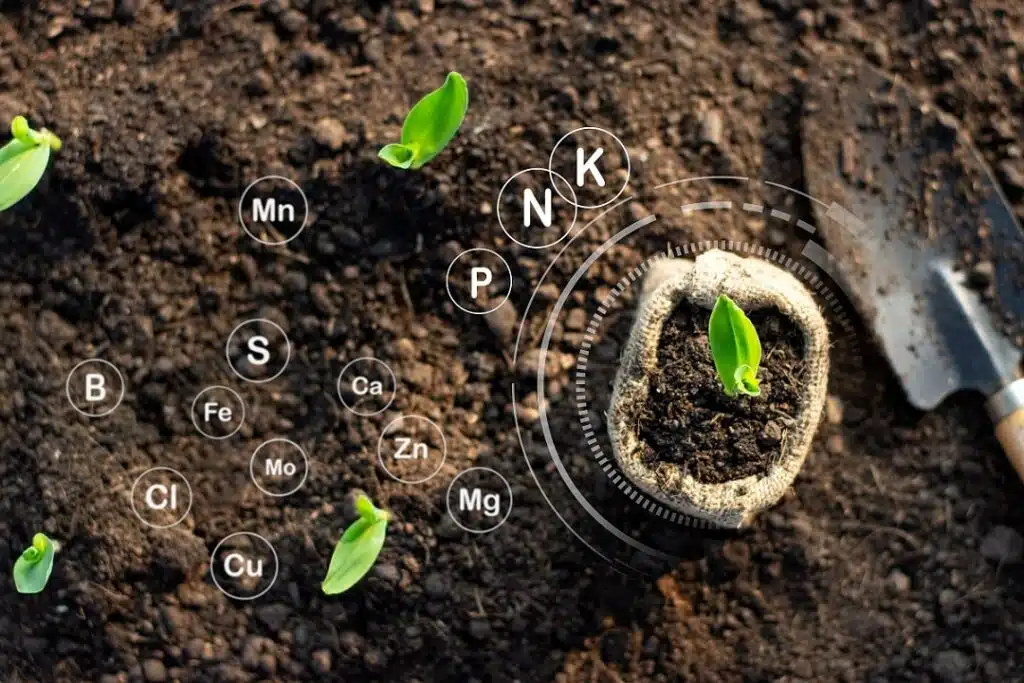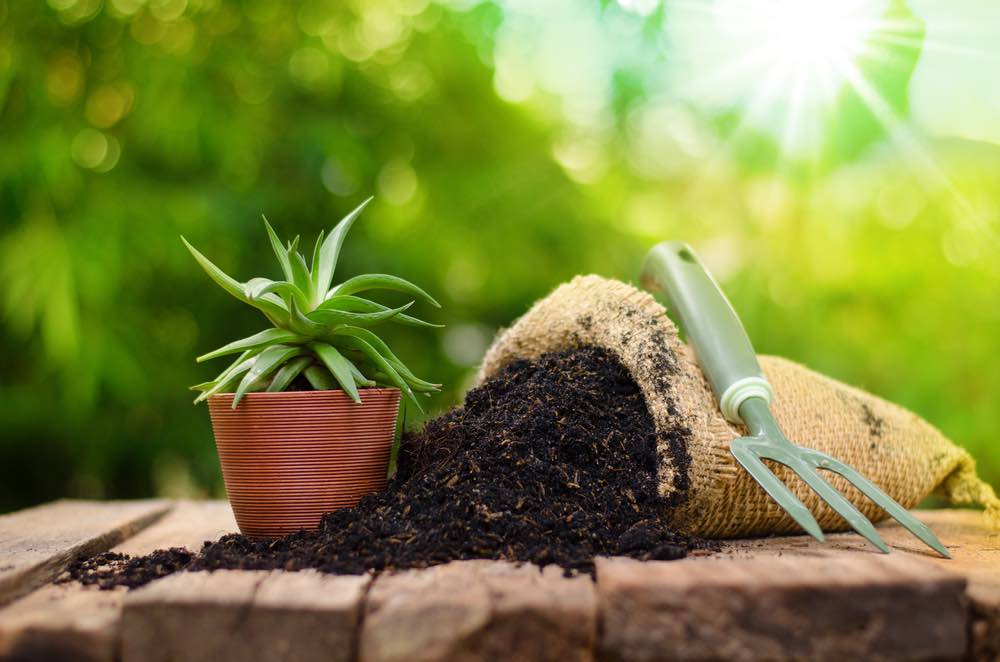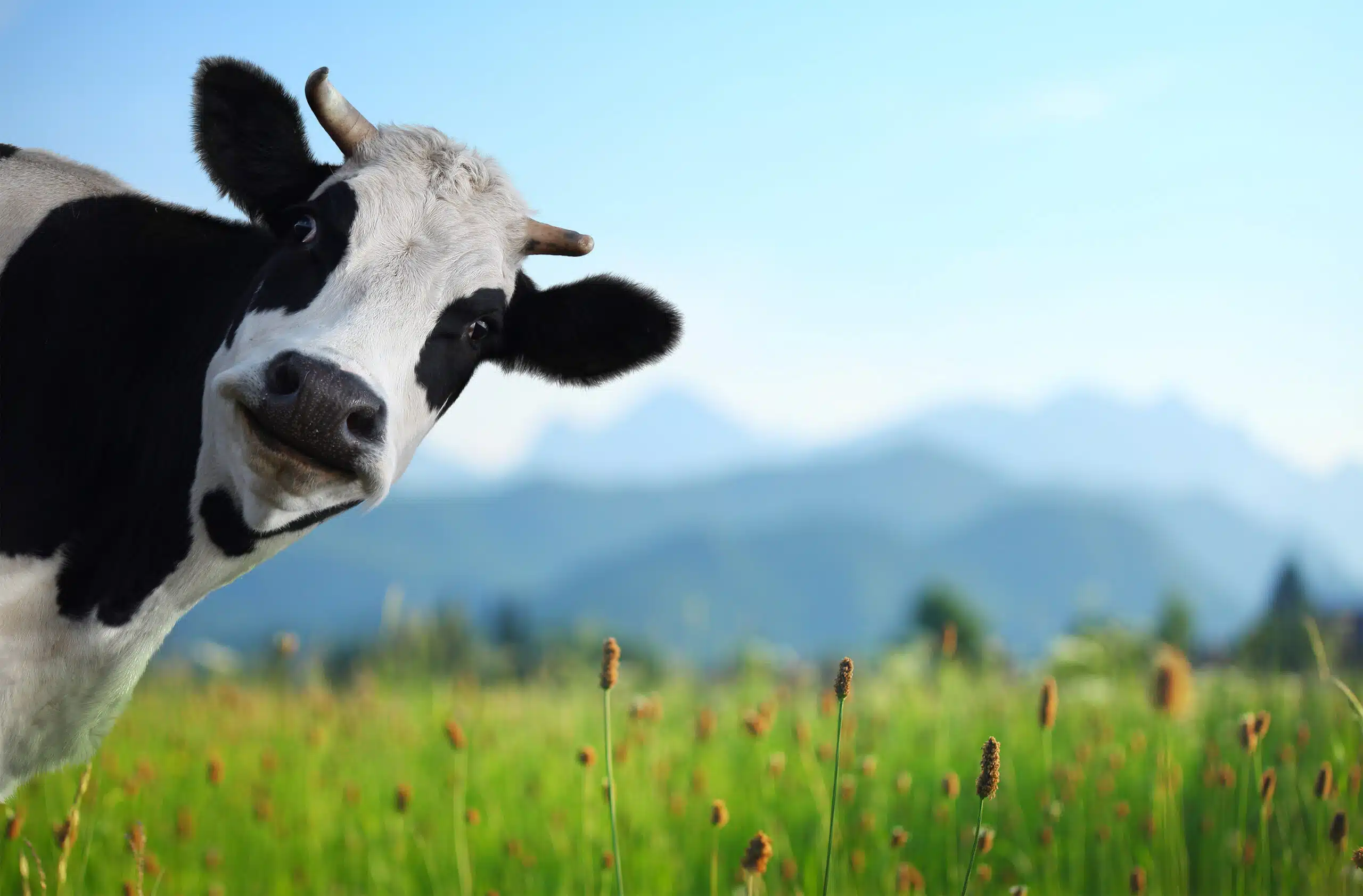What is an organic fertilizer?
Organic fertilizers are carbon-based, naturally produced materials added to soil or plants to sustain growth. The term covers a variety of plant-derived substances, from fresh or dried plant material to agricultural by-products to animal manures. In this case, the term “organic” highlights that the organic matter used to create the fertilizer is minimally processed.
Organic fertilizers contain moderate amounts of nutrients that support plant growth—they have low nitrogen, phosphorus, and various other minerals, depending on the source materials. The nutrients are slowly released into the soil, maintaining soil fertility, recreating balance in the environment, and organically supporting plant development.

The benefits of organic fertilizer
Overall, organic fertilizers are considered less effective than chemical products due to their lower, more environment-friendly concentrations of nutrients. But this isn’t necessarily a bad thing if you’re looking for more balanced and healthy crops, fruits, and vegetables.
Thanks to being 100% natural products, they positively impact the environment in the long run while supporting your agricultural efforts in more than one way.
To understand the long-term benefits of using organic fertilizers, you need to consider soil structure, environmental impact, health concerns, and easiness of application.
Support soil regeneration
Not only do organic fertilizers boost your plants, but they also improve the soil texture. This way, it can hold water longer and create the proper environment for bacterial and fungal activity thanks to the carbon presence. With balanced amounts of carbon, nitrogen, phosphorus, and potassium, microbes thrive and continuously produce nutrients for plants through natural processes.
On the other hand, synthetic fertilizers are more likely to eliminate a series of nutrients from the soil, making it unproductive in the long run.
Grow vigorous plants with sustainable methods
Natural fertilizers are less likely to harm your plants or the environment, as they release substances gradually in the fields, and there’s little chance for chemical substance buildups.
If you opt for synthetic fertilizers, some of their components contaminate the clean water sources and, as a consequence, harm local wildlife. Studies have shown that high amounts of nitrate that gather in the soil over years of using chemical fertilizers impact biodiversity, reduce biological activities in the area, and lower body weight in farm animals.

Types and sources of organic fertilizer
Most organic fertilizer is obtained by composting, a process in which bacteria break down organic matter into gas and nutrients. Depending on the materials used, the fertilizer can be:
Plant-based: from plant residue and agricultural by-products.
Animal-based: from animal manures and residues from the slaughter of animals.
Sea fertilizer: from sea minerals, fish, or seaweed.
Examples of organic fertilizer
1) Manure
Manure is a balanced fertilizer made of waste mainly from cows, sheep, poultry, and horses. It contains balanced amounts of nutrients that provide sustainable plant growth and bring back balance into the soil. Thanks to its composition, manure is an effective fertilizer for all types of plants and cultures.
Fresh animal waste isn’t appropriate for fertilizing fields. The manure must go through a composting process before being used successfully as an organic fertilizer. Plus, you can obtain biogas besides fertilizer if the composting process occurs through anaerobic digestion.
2) Bat Guano
Bat guano is a natural fungicide and highly effective organic fertilizer, with a high nitrogen concentration and a ratio of 10-3-1 NPK.
3) Blood or Bone Meal
Blood and bone meal are fertilizers obtained from powdered animal blood or ground bone. The blood-based products are rich in nitrogen, so you should use them in small amounts to support green growth.
Bone meal is famous for its high amounts of calcium and phosphate, essential for developing a resistant root system. You could use this fertilizer type to grow trees and other perennial plants.
4) Fish emulsion
Fish emulsion is made of decomposed powdered fish and carcass products and can have a particular smell. It’s rich in nutrients and secondary elements, such as calcium and magnesium. It’s an excellent option for multiple types of fruits and vegetables.




